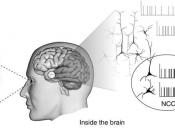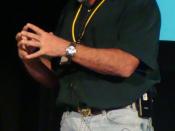If psychologists were to just study consciousness as a whole, it would seem similar to simply studying a pizza on the whole. Where a pizza can have many different arrangements of toppings and sizes, consciousness can have many different states as well. Baron defines states of consciousness as, "[The] varying levels of awareness of ourselves, our behavior, and the world around us" (130). Psychologists study 'states of consciousness' instead of just consciousness because, like a pizza, each slice can be different.
People go through different states of consciousness each day. These biological rhythms are responsible for setting the pace of a person's live. The fluctuations that occur throughout the day are called circadian rhythms (Baron 131). These rhythms create a type of biological clock that can differ for each person. Some people may notice that they are more alert and energetic during the morning period, while others are the opposite, and at some time during the day both groups may feel equally alert.
Psychologists can study two different people at the same time of day, and report a difference in their states of consciousness.
Regardless of the time of day, people perform duties and tasks without even being fully conscious of them. Baron refers to this process as 'automatic processing' because it uses very little conscious awareness and states, "Every time you drive while listening to the radio, you demonstrate automatic processing" (136-137). On the other hand, 'controlled processing' requires much more concentration and uses more cognitive resources (Baron 137). Taking Baron's example of driving and listening to the radio as an example, would psychologists be able to determine if using a cell phone while driving produced similar states of consciousness? Perhaps if they should be involved in the debate to ban the use of cell phones...


